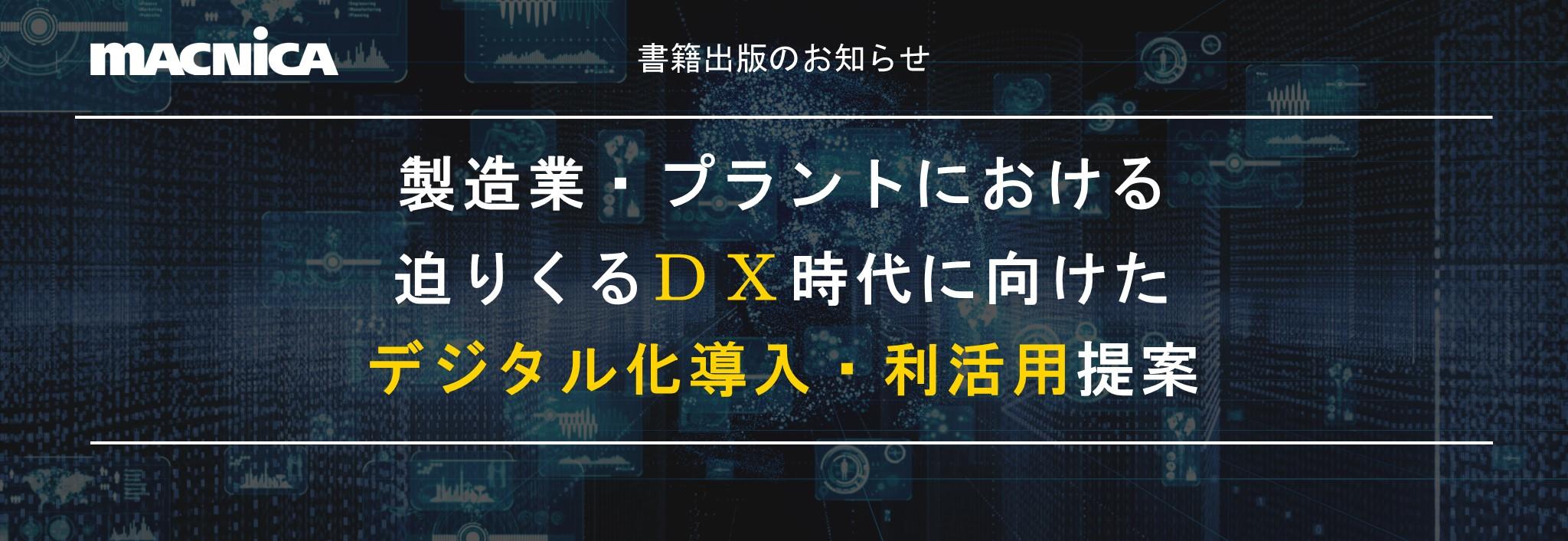
While touching on the issues and troubles peculiar to the manufacturing industry, we will explain the technologies, laws and regulations, human resources, and how to proceed with projects that are necessary for DX and digitalization of operations!
Kota Abe, General Manager of the Industrial Solutions Division Macnica
I am responsible for writing the following chapters in this book: "Chapter 1: Basic knowledge for promoting digital transformation (DX)" / "Section 4: Smart factories and the practical application of AI."
book point
| ★ |
How to approach AI practical operation in the manufacturing industry |
| A detailed explanation of the failures that many companies tend to fall into when collecting data that is essential to DX, how to deal with them, and how to collaborate with both the field and management! |
|
| ★ | Business obstacles in promoting DX and how to overcome them |
| “Can we visualize the effect after introduction?”, “Is it possible to implement it in existing factories?”, “Will it take away people’s work?” Explain your question! |
|
| ★ | The first step towards DX ~ Examples of efforts to improve productivity using IoT and AI |
|
Introducing examples of initiatives such as digitization of on-site know-how and skilled worker operations, data acquisition approach and production efficiency improvement in old-fashioned equipment, and front-loading technology for equipment development! |
Click here for the table of contents of "Chapter 1 Section 4 Smart Factory and AI Actual Operation"
| Chapter 1 | Basic knowledge for promoting digital transformation (DX) |
| Section 4 | Smart factory and actual AI operation |
| Introduction | ||
| 1. | Paradigm shift for AI practical operation in the manufacturing industry | |
| 1.1 | Cooperation with management for AI practical operation | |
| 1.2 | Collaboration with the field for actual AI operation | |
| 2. | Data collection is the key to AI operation | |
| twenty one | Reasons why data collection is difficult and points to keep in mind | |
| twenty two | A typical case where data collection becomes a bottleneck | |
| 2.2.1 Insufficient knowledge and examination of sensing | ||
| 2.2.2 Insufficient assumption of differences between manufacturers and models when acquiring equipment operation data | ||
| 2.2.3 Insufficient study of data collection mechanism | ||
| 2.2.4 Coordination with business and mission-critical systems | ||
| 3. | Representative AI use cases and data collection | |
| 3.1 | Sophistication and labor saving of production planning | |
| 3.2 | Efforts to improve quality | |
| 3.3 | Digitization of inspection process | |
| 4. | What is necessary for continuous utilization of AI | |
| in conclusion | ||
Author profile

Kota Abe
General Manager, Macnica
Engaged in marketing/sales support for the manufacturing industry at a strategic consulting company.
After that, he moved to Macnica
We provide marketing and introduction support for the latest overseas electronic components, mainly in Silicon Valley, for the design and development of domestic manufacturers.
In May 2020, he wrote "Smart Factory Practice" in the technical magazine "Machine and Tools May 2020 Issue".
Currently promoting smart factory introduction support business.
Book launch webinar
Book publication commemorative webinars will be held from 5/11 (Tue), 5/25 (Tue), 6/8 (Tue), and 6/22 (Tue).
